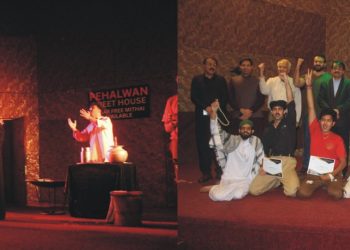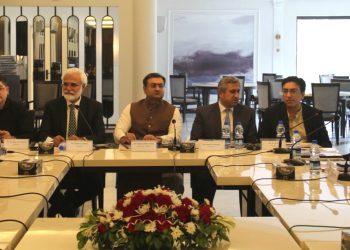Staff Reporter
Islamabad:Federal Minister for Commerce Jam Kamal Khan addressed a national awareness conference organized by the World Food and Agriculture Organization (FAO) in Islamabad. The theme of the national awareness conference was Geographical Identification (GI) in Pakistan’s Geographical Identification System, Exports, Economy and Protection of Cultural Heritage. Federal Minister for Commerce Jam Kamal Khan, while addressing the national awareness conference, reiterated the commitment to promote Pakistan’s Geographical Identification System. The Federal Minister for Commerce said that geographical identification is not only the protection of intellectual property but also an effective tool for preserving cultural heritage, rural development and creating new opportunities for exports. We are standing at a critical juncture where Pakistan can emerge in the global markets not just as an export country but also as a protector of quality and heritage.He said that so far 20 products of Pakistan have been registered under geographical indications, including basmati rice, chilgoza, Sindhri mango, and Multan blue soil products. In addition, applications have also been made for international protection of these products in other important global markets including the European Union.The Federal Minister for Commerce said that it is the need of the hour to create a complete value chain through product description, certification, branding and traceability so that substantial economic benefits can be provided to the local producers.The Federal Minister for Commerce said that more than 200 products have been identified as potential geographical indications in Pakistan. He appreciated the technical support provided by FAO under the TRI-Chilgoza project, under which chilgoza has been identified as a potential GI in Gilgit-Baltistan, North and South Waziristan, Sherani (Balochistan) and Chitral. He said that the GI system will not only provide positive results for trade development but also for environmental protection.The conference was attended by participants from various sectors including federal and provincial governments, development partners, product registration businesses, chambers of commerce, civil society experts, universities, and private sector users.The platform aimed to promote national development and the United Nations Sustainable Development Goals (SDGs) through GI, improve institutional coordination, and develop a strategy to expand the geographical identification system.


















